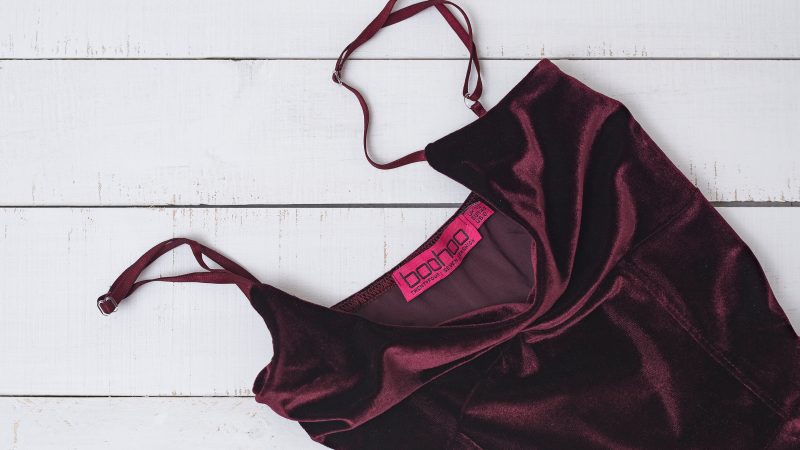
Question 1. How do you get a Tory government to ignore illegal practices in the fashion industry? Answer. Make sure you have 93 official investigations and a select committee report on the problem.
As the environmental audit committee (EAC) launched its new investigation recently, it is worth noting that inquiries into the UK fashion industry have been running at the rate of ten a year for almost a decade since the Channel 4 Dispatches documentary in 2010. Every time, the same facts have emerged: worker exploitation and failure to pay the national minimum wage. Yet recommendations for better resourcing of inspections, due diligence checks across supply chains and financial penalties for non-compliance with the Modern Slavery Act have all been ignored by the government.
It is this inaction that encouraged manufacturers to capitalise on the Covid crisis. Companies like Boohoo seized on the opportunity presented by the surge in online sales that saw growth of 44% in the first quarter of the year. And it is this inaction that meant it was workers in places like Leicester that paid the price of that growth. Factories have operated at 100% capacity with little or no social distancing measures, and there are even reports of workers being forced to come in to fulfil orders despite testing positive for Covid: ‘Just don’t tell the others you’ve got it!’.
Question 2. How do you fix fashion? Answer. Outrageous things, like paying workers properly and regulating your supply chain.
Purchasers such as Boohoo drive prices down by bringing all the competing suppliers into the same room and holding a bidding war, asking: ‘Who can make this dress for less?’. It is a reverse auction where the manufacturers compete to supply the garment for an even lower price than each other. The result is that the ‘winning’ manufacturer is forced to drive down wages and conditions in their factories in order to meet the contract.
With such cutthroat practices, the government should hardly be surprised to find that workers are operating in unsafe conditions and paid below the minimum wage. What should be a surprise is that there has been no additional monitoring and enforcement by HMRC’s national minimum wage inspections, which still give manufacturers two weeks’ notice in writing before they attend the factory.
Boohoo and others should be obliged to publish their list of suppliers and subcontractors, at the very least, and to commit to robust auditing and transparency throughout their supply chains. Fiona Gooch of Traidcraft Exchange is one of the people who has been leading the campaign for a ‘garment trade adjudicator’ to bring much needed regulation to fashion retailer purchasing practices. She told the select committee that, due to the enormous power imbalance between retailers and suppliers, the disruption to trade as a result of Covid has meant retailers have simply not paid for £12bn worth of clothes and at least £2bn is owed in wages. The International Labour Organisation has estimated that 86 million workers in the garment industry worldwide are now in severe hardship.
Boohoo director Andrew Reaney, in charge of “responsible sourcing”, admitted to the EAC inquiry that the company had recently been alerted to an unauthorised subcontractor in Pakistan. He did not say whether it was the one in which a recent investigation found workers were being paid just 29p per hour.
Question 3. What has any of this got to do with me? Answer. Who do you think is buying all this crap, and who do you think is paying for it?
If the only thing we are interested in when we go online or into a store is how to get the item we want at the lowest possible price, then we are hypocrites when we point the finger at companies like Boohoo. It is we, the consumers, who fuel the race to the bottom. The more we drive down price, the more we drive down wages and conditions in factories.
The public are certainly more environmentally conscious now than when allegations of illegal practices in the garment trade first surfaced in 2010, but demand for fast fashion continues unabated. On Black Friday, Boohoo was offering up to 99% off their clothes – with one little black dress going for just 8p.
Imagine the transformation in the industry if, instead of searching the label for the price, we searched for a mark telling us this garment was made by a unionised workforce. At our inquiry, the Boohoo Group’s executive chairman was asked whether he would agree to repeated requests from Usdaw to meet and discuss union representation. His reply was either astonishingly ignorant or disturbingly arrogant – or perhaps both. His exact words were: “What I would like to say is that I personally do not want to join a union so I do not want to meet them.”
Exploitation of workers is not new. The refusal of management to engage with unions is not new. The imbalance of power makes it difficult for workers to secure their rights without the unity and solidarity that is difficult to achieve in a global supply chain where one group is pitted against the other. That is where consumer power can work to redress the balance. We have the power to not purchase. We have the power to boycott Boohoo. Read the ‘Fixing Fashion’ inquiry report here and watch the follow-up hearing here.




More from LabourList
Economic stability for an uncertain world: Spring Statement 2026
‘Biggest investment programme in our history’: Welsh Labour commit to NHS revamp if successful in Senedd elections
James Frith and Sharon Hodgson promoted as government ministers